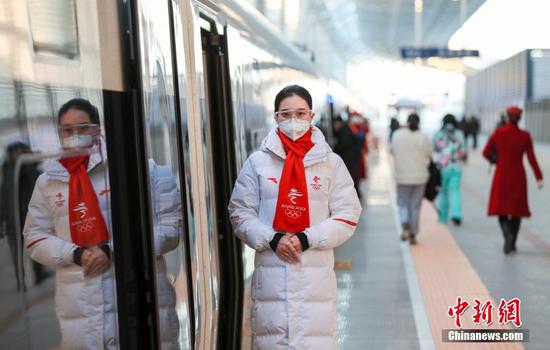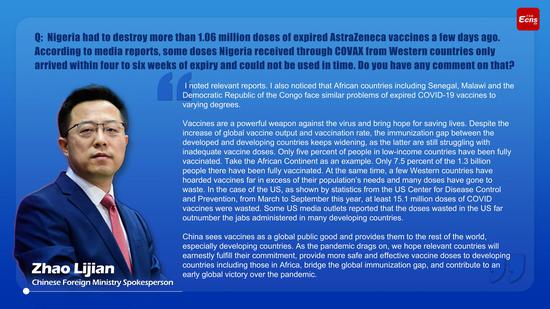Omicron was officially announced on Tuesday as the absolutely dominant variant of COVID-19 in the United States, as the country is entering the third year of the pandemic, with more curing pills ordered from Pfizer while the federal government's policies criticized as murky.
OMICRON DOMINANCE
Nearly all new U.S. COVID-19 cases last week were linked to the Omicron variant, the Centers for Disease Control and Prevention (CDC) reported on Tuesday, as the highly transmissible new strain has quickly overtaken the Delta variant and sparked new surges nationwide.
The Omicron variant, also known as B.1.1.529, was detected in approximately 95.4 percent of all new cases for the week of Dec. 26 to Jan. 1, the CDC estimated, while 4.6 percent were linked to the Delta variant.
That was a rise from the Omicron variant making up 77 percent of the cases the previous week, 37.9 percent the week ending Dec. 18 and just 8 percent the week ending Dec. 11, according to the agency.
The variant made up the majority of cases in every U.S. region, with the regions with the highest percentage of Omicron cases including New York and New Jersey, Texas and its surrounding states and the Southeast.
The new strain has proved to be more resistant to vaccines when it comes to preventing infections, and early studies have suggested the variant may produce milder disease than previous coronavirus strains, reported Forbes on Tuesday.
MORE PILLS
U.S. President Joe Biden on Tuesday announced that the federal government is doubling its order for Pfizer's COVID-19 antiviral pill, Paxlovid, which has been shown to reduce hospitalizations and severe illness significantly.
"Production is in full swing. The United States has more pills than any other country in the world and our supply is going to ramp up over the coming months, as more of these pills are manufactured," Biden said during remarks at the White House.
"Today I'm directing my team to work with Pfizer to double our order from 10 million to 20 million treatment courses to be delivered in the months ahead," he added.
The president also cautioned during his remarks that "we may need even more. That's the estimate we need right now." Biden had announced a purchase of 10 million courses late last year.
"Despite the additional purchase, it will take months to ramp up supply of Pfizer's antiviral treatment. And with forecasts indicating that the Omicron surge could peak this month, this could mean the vast majority of courses arrive at a time when the variant is on the decline," reported CNN.
CDC CONFUSION
Monthly magazine Reason reported on Monday that "if the pandemic were high school, we'd be juniors by now." The fact that the United States has entered its third calendar year of full-blown pandemic feels "surreal and almost unbelievable," it said.
"Schools are still closing without much warning, plagued by both politics and logistics. COVID-19 tests are still hard to come by. We're still arguing about how to keep people in jails and prisons safe. Shows and festivals are once again shutting down. Hospitals are being overwhelmed. Flights are getting canceled," the magazine reported.
"And public health officials still can't get it together. Their guidance is slow-moving, prone to flip-flopping, and weird, often out of line with scientific best practices, practical behavior, or both," said the report.
Take the latest from the CDC, which since the start of the pandemic has been "providing a master class in how to confuse the American public," it said. For a long time, the agency recommended that Americans who test positive for COVID-19 quarantine for 10 days, but recently shortened it to five.
"Since the start of the pandemic, messaging from the CDC and other government actors has been confused and confusing. At every step, it seems the agency has managed to undermine public confidence or put politics over clarity," it added.


















































 京公网安备 11010202009201号
京公网安备 11010202009201号